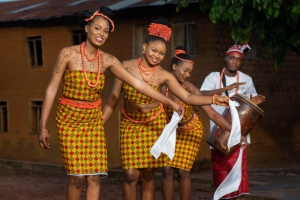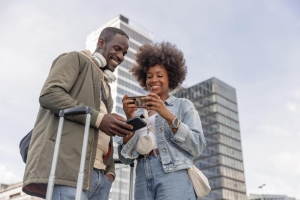Introduction
Botswana is a top destination for travelers seeking incredible wildlife, stunning landscapes, and rich cultural experiences. Whether you’re visiting the Okavango Delta, Chobe National Park, or the Kalahari Desert, managing your money effectively will ensure a smooth and stress-free trip. This guide covers everything you need to know about currency, exchange rates, payment options, and budgeting while traveling in Botswana.
Understanding Botswana’s Currency
The official currency of Botswana is the Botswana Pula (BWP). The word Pula means “rain” in Setswana, symbolizing the value of water in this arid country.
- Currency Code: BWP
- Symbol: P
- Denominations:
- Banknotes: P10, P20, P50, P100, and P200
- Coins: 5 thebe, 10 thebe, 25 thebe, 50 thebe, P1, P2, and P5
The Pula is a stable and widely accepted currency in Botswana. While some places may accept foreign currencies like US Dollars (USD), South African Rand (ZAR), or Euros (EUR), it’s best to use Pula for most transactions.
Exchanging Money in Botswana
Where to Exchange Currency
- Banks: Major banks such as First National Bank Botswana (FNB), Barclays (Absa), and Standard Chartered offer currency exchange services.
- Foreign Exchange Bureaus: Found in major cities and at airports, these often provide competitive rates.
- ATMs: The easiest way to get Pula is by withdrawing cash from ATMs using an international debit or credit card. ATMs are widely available in cities but may be scarce in remote areas.
- Hotels & Lodges: Some high-end hotels and lodges offer currency exchange, but their rates are usually less favorable.
Tips for Exchanging Money
- Avoid exchanging money at the airport if possible, as rates tend to be higher.
- Always compare rates at different exchange bureaus before making a transaction.
- Keep small denominations of Pula for tipping and small purchases.
Payment Methods in Botswana
Cash vs. Card Payments
Botswana is a cash-friendly country, but digital payments are becoming more common.
- Cash: Many markets, small shops, and rural areas still prefer cash transactions. Always carry some cash, especially when traveling outside major cities.
- Credit & Debit Cards: Visa and Mastercard are widely accepted at hotels, restaurants, and large retailers. American Express and Diners Club cards may not be as commonly accepted.
- Mobile Payments: Some businesses accept mobile payment platforms like Orange Money and MyZaka, but these are more popular among locals.
ATMs & Cash Withdrawals
- ATMs are available in cities like Gaborone, Maun, and Kasane.
- Most ATMs accept international cards, but be aware of withdrawal limits and transaction fees.
- If traveling to remote areas, withdraw enough cash in advance, as ATMs may not be available.
Budgeting for Your Trip
Your daily budget will depend on your travel style. Here’s a rough breakdown of costs:
- Budget Travelers ($30 – $80 per day)
- Dorm bed or basic guesthouse: $10 – $40
- Local transport (buses/taxis): $5 – $15
- Cheap meals at markets or local restaurants: $5 – $15
- National park entry fees: $10 – $30
- Mid-Range Travelers ($80 – $250 per day)
- Comfortable hotel or safari lodge: $50 – $150
- Private transport or car rental: $30 – $60
- Restaurant dining: $10 – $30 per meal
- Guided tours and activities: $30 – $80
- Luxury Travelers ($250+ per day)
- High-end safari lodge or luxury hotel: $250+
- Private tours and charter flights: $200+
- Fine dining and premium experiences: $50+ per meal
Tipping Culture in Botswana
Tipping is not mandatory but is appreciated in certain situations:
- Restaurants: 10% tip for good service (check if a service charge is included).
- Safari Guides & Rangers: $5 – $10 per person per day.
- Hotel Staff: Small tips for housekeeping or luggage assistance ($1 – $3).
Final Money Tips for Travelers
✔ Always have some cash on hand for emergencies, especially when visiting remote areas.
✔ Inform your bank about your travel plans to avoid card blocks when using ATMs.
✔ Use a mix of payment methods (cash, card, mobile payments) for convenience and security.
✔ Be mindful of ATM fees—withdraw larger amounts at once to minimize charges.
✔ Keep small denominations for local markets, taxis, and tips.
Conclusion
With the right financial planning, your trip to Botswana can be smooth and hassle-free. Whether you’re exploring the breathtaking landscapes or immersing yourself in the culture, knowing how to handle currency and payments will help you make the most of your adventure. Happy travels!








